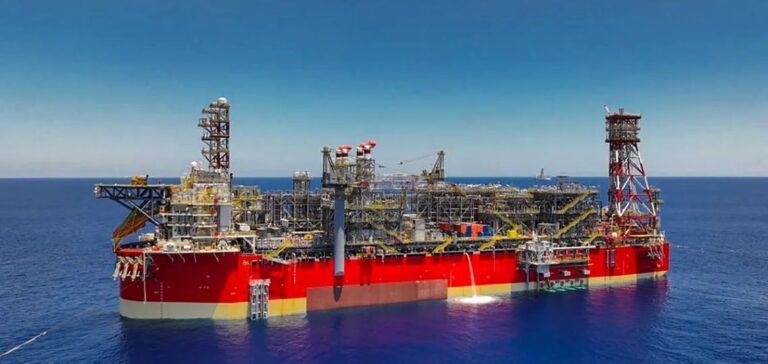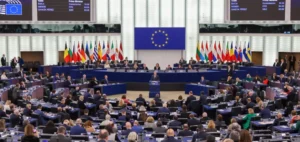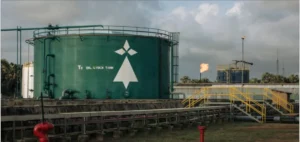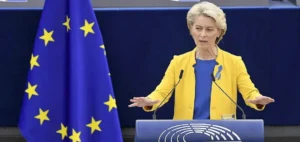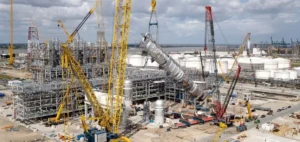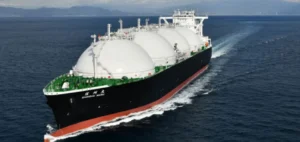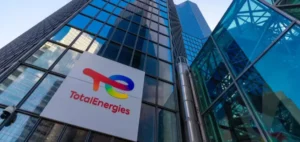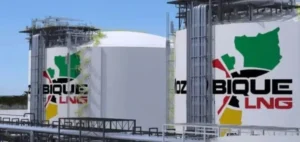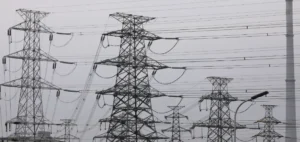TotalEnergies and the Italian hydrocarbon giant Eni have signed a framework agreement with Israel on the Qana gas field shared with Lebanon, the French group announced Tuesday in a statement.
The framework agreement aims to “implement the maritime border agreement that was finalized between Israel and Lebanon on October 27, 2022″, says the French group.
The October 27 agreement ensures the distribution of valuable offshore gas fields in the Eastern Mediterranean and reduces tension in the region. It was obtained through a long American mediation.
This agreement will allow Beirut to begin exploration for hydrocarbons in the Qana field, part of which is located in Israeli territorial waters, in return for payment of compensation to the Hebrew state.
TotalEnergies and ENI will now be able to explore a “previously identified prospect that could extend both into Block 9 and into Israeli waters south of the recently established maritime boundary,” explains the French group.
Lebanon has divided the exclusive economic zone in the sea into ten blocks and block 9, where the Qana reservoir is located, was part of the disputed area with Israel which is technically still in a state of war with Lebanon.
Under the agreement between the two countries, Lebanon will have full rights to explore and exploit the Qana field, but analysts agree that it will take several years for Beirut to enter the exploitation phase.
Eventually, Israel will be paid by the firm operating Cana “for its rights on possible deposits”, according to the text of the agreement, the Israeli government estimating its share at about 17%.
“In Lebanon, TotalEnergies is the operator of the exploration Block 9 and holds a 60% interest alongside its partner ENI (40%),” the French group said.
“We will respond to the request of both countries to assess the materiality of hydrocarbon resources and their productive potential in this area,” said Patrick Pouyanné, CEO of TotalEnergies, in a statement.


